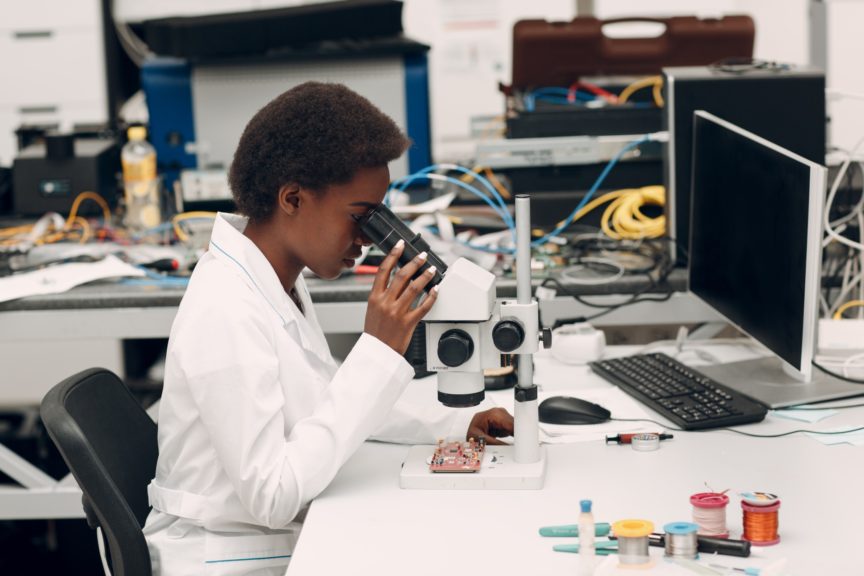Innovation depends upon the inclusion of diverse voices and experiences across all industries. Good tech policy must prioritize diversity, equity and inclusion.
Considerations of how policies affect all communities – including those that are underrepresented and marginalized – must be weaved into all technology priorities to help ensure a more equitable, inclusive, and fair innovation-based economy. Including more people of color, girls and women in STEM-related fields will lead to greater innovation by broadening the marketplace of ideas and bringing in new viewpoints and life experiences.
The technology industry is working to address the dire need for change and inclusion, increased support and opportunities to encourage more minorities, girls, and women to pursue and succeed in STEM careers. Companies are working with non-profits and educational institutions to develop new strategies to help close the gender gap in STEM for teachers, parents and nonprofit leaders.

Good policy ensures that minority communities are included in the workforce of tomorrow and supporting extending workplace protections to nontraditional workers. It means increased federal investments in Historically Black Colleges and Universities (HBCUs) and Minority Serving Institutions (MSIs) and supporting closing gender, racial, and socio-economic gaps in the STEM field to ensure that no one is left behind. That includes developing and adopting inclusive policies and technologies that increase accessibility for Americans with disabilities.